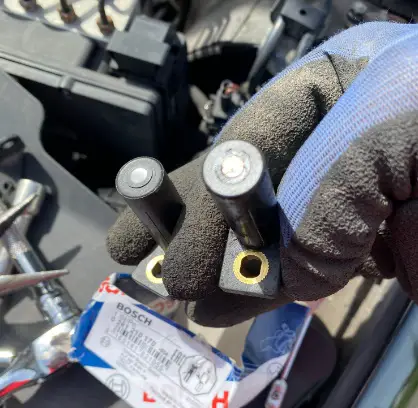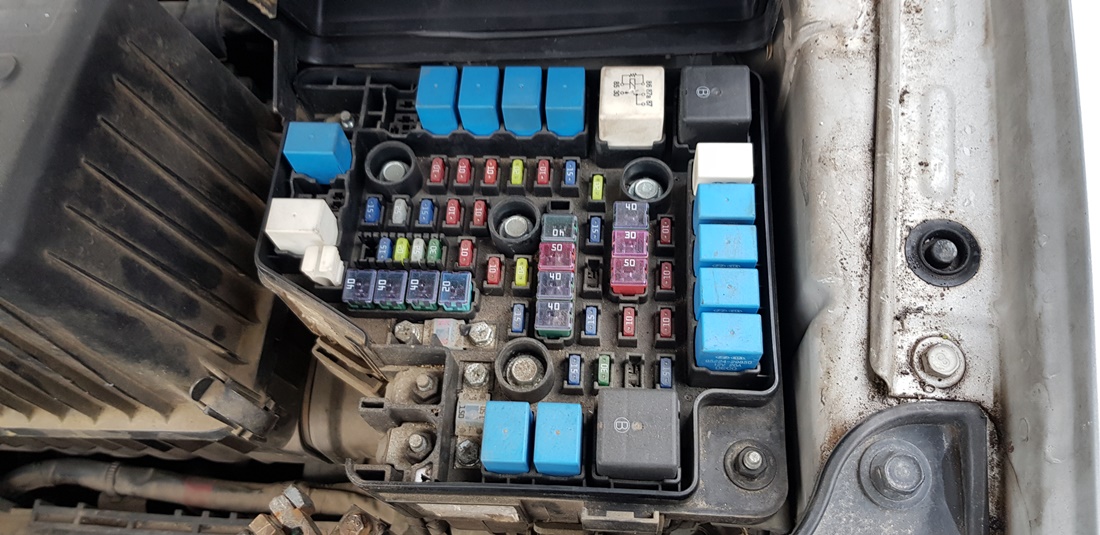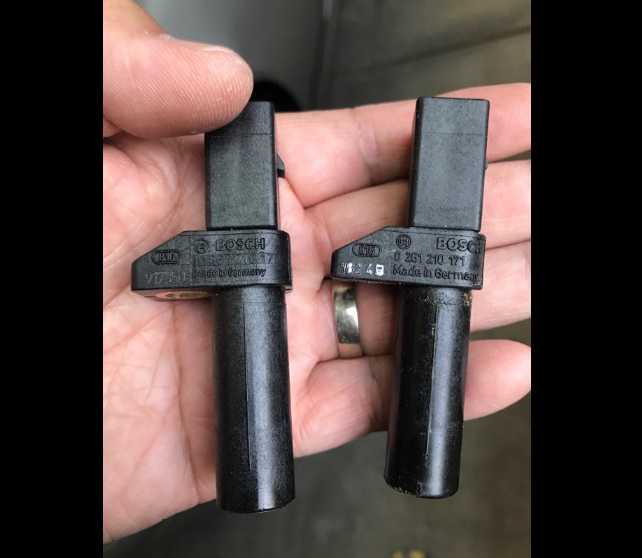Dielectric grease is an everyday component in many cars. But do you know what it does and more importantly, is it necessary for your spark plugs?
In this blog post, we’ll address these queries and more. We’ll examine the role of dielectric grease in engines and help you decide if it’s something that should be kept on hand. Stay tuned!
- Key Takeaway
- What is Dielectric Grease
- Is Dielectric Grease Necessary For Spark Plugs?
- How To Properly Use Dielectric Grease on Spark Plug Wires
- What’s the Difference Between Dielectric Grease and Lubricating Grease?
- What happens if you use too much dielectric grease on spark plugs?
- Will Dielectric Grease Worsen a Connection?
- What happens if I don’t use dielectric grease on spark plugs?
- FAQs
- Q: Can I use dielectric grease on spark plug boots?
- Q: Should I apply dielectric grease to the spark plug threads?
- Q: Why is dielectric grease necessary for spark plug boots?
- Q: Can I use dielectric grease on other electrical connectors?
- Q: How much dielectric grease should I use on spark plugs?
- Q: What happens if I put dielectric grease on the spark plug electrode?
- Q: Is dielectric grease necessary for new spark plugs?
- Q: Can I use dielectric grease on the ignition coil?
- In Conclusion
Key Takeaway
- Dielectric grease is a non-conductive, silicone-based grease designed to seal out moisture and prevent corrosion on electrical connectors.
- While not necessarily required, dielectric grease is often used on spark plugs to keep moisture out, maintain rubber suppleness, prevent cracking with age, and ensure longevity and proper functioning of the spark plug.
What is Dielectric Grease

Dielectric grease is a type of lubricant designed to reduce wear and tear on electrical connectors and other electronic equipment. It consists of synthetic oil mixed with an electrically non-conductive material, which helps keep electricity from passing through the grease.
Dielectric grease can be effective in preventing sparks and corrosion from occurring. Additionally, it ensures electrical connections remain tightly sealed against water intrusion.
Dielectric grease is composed of various materials, but the primary ingredient is silicon dioxide. Other common ingredients may include aluminum oxide, zinc oxide, and titanium dioxide; however, the exact composition varies depending on the manufacturer.
Dielectric grease comes in both aero-sable and non-consumable forms. The former is usually employed for electrical applications, providing a shield between two conductive surfaces. On the other hand, consumable forms may be employed during food preparation or as lubricants.
Is Dielectric Grease Necessary For Spark Plugs?

Dielectric grease is not always necessary for spark plugs, but it can be beneficial. Dielectric grease helps prevent corrosion by creating a barrier between the metal of the plug and moisture in the air, which helps extend their life by avoiding rust and other forms of corrosion.
Another benefit of dielectric grease is that it improves electrical contact. Applying it to a spark plug fills any gaps between metal surfaces, creating an improved connection and better electrical flow.
Dielectric is a nonconductor of direct electric current. That is, it acts as an insulator rather than a conductor and should only be applied to the ceramic part of spark plugs, not their terminal.
Dielectric grease is an insulating compound commonly used to coat electrical connectors. It can be found in everything from car spark plugs and household electronics. Spark plugs use dielectric grease because it helps create a better connection between them and the engines, leading to improved performance and longer spark plug life.
Dielectric grease can help protect against corrosion and improve electrical contact when replacing spark plugs, but if you are just changing them out for routine maintenance, dielectric grease probably isn’t necessary.
How To Properly Use Dielectric Grease on Spark Plug Wires
Dielectric grease is an integral part of properly caring for your spark plug wires. Not only does it shield them from moisture and corrosion, but also provides an electrical connection.
Here is a step-by-step guide on how to apply dielectric grease on your spark plug wires.
1. Remove the spark plug boots
You’ll need three tools for this job: a ratchet, an extension, and a spark plug socket. The first step is to locate the spark plug boot at its end. Use your ratchet and extension to remove it with ease.
Be mindful not to damage either the boot or the end of the spark plug when taking it out of the engine. Use a spark plug socket to safely take out the plug from its socket; be sure to insert it firmly so as not to damage it.
2. Apply dielectric grease on a cotton swab
Dielectric grease acts as an insulator, so it should be applied to the inside of a spark plug boot. A cotton swab makes for an easy applicator; just fill your fingertip with small amounts of dielectric grease and rub it onto both sides of the plug boots.
Apply a thin coat using circular motions. Doing so will guarantee that the grease completely covers the inside of the boot and offers optimal protection.
By doing this, the boots will stay off of the ceramic portion of the spark plug and make future removal much simpler.
3. Apply dielectric grease to the ceramic portion of the spark plug
For added protection, you can apply a thin coat of grease to the ceramic portion of a spark plug. Be sure not to get any on the metal terminal. Dielectric grease should never be used on the distributor or coil ends of spark plugs.
Dielectric grease acts as an insulator and will protect the spark plug from corrosion. However, too much dielectric grease on the plug may weaken its spark, leading to misfires. Be sure to wipe away any extra grease before installing your spark plug.
What’s the Difference Between Dielectric Grease and Lubricating Grease?
| Dielectric Grease | Lubricating Grease | |
|---|---|---|
| Purpose | Protects electrical connections from moisture and corrosion, and prevents voltage leakage. | Reduces friction between mechanical components and prevents wear and tear. |
| Composition | Composed of silicone, it’s non-conductive and water-resistant. | Typically composed of a soap emulsion with mineral or synthetic oil. |
| Usage | Commonly used in spark plug boots, automotive and marine ignition systems, and electrical connectors. | Used in various mechanical systems like bearings, gears, and automotive suspension systems. |
What Happens If You Use Too Much Dielectric Grease on Spark Plugs?
Dielectric grease should never be overapplied on spark plugs, as too much may cause misfiring and engine damage as well as reduced fuel economy. Be sure to follow the manufacturer’s recommendations when applying dielectric grease; too much may even lead to overheating of the plug which could further wreak havoc.
Dielectric grease is a silicone-based compound used to shield electrical connections from corrosion. It should only be applied sparingly, as too much can lead to issues with spark plugs.
Furthermore, avoid getting dielectric grease on the threads of the spark plug; if this does happen, clean it off before installing it in your engine.
Dielectric grease can also be applied to other electrical connections, such as battery terminals and distributor caps. When using dielectric grease on these types of connections, always follow the manufacturer’s instructions says The Drive.
Will Dielectric Grease Worsen a Connection?
Dielectric grease will not worsen a connection. Contrary to some misconceptions, dielectric grease is not conductive and does not interfere with conductivity, but rather it helps maintain a good connection by preventing corrosion and moisture ingress.
However, it should be noted that while dielectric grease itself is not harmful to a connection, improper application, such as using too much of it, could potentially cause issues if not all of the grease is pushed out of the way when making the connection.
What Happens If I Don’t Use Dielectric Grease On Spark Plugs?
If you don’t use dielectric grease on spark plugs, you might experience issues like corrosion, difficulties in removing the boots later, and potential misfires due to moisture or contaminants.
Dielectric grease serves as a protective barrier against moisture, dirt, and corrosion for the electrical connections in your vehicle. It is typically applied to the inside of the spark plug boot, helping to create a seal that keeps out these damaging elements.
Without it, the metal parts of the spark plug and wire connector are exposed to potential corrosion over time, which can degrade the quality of the electrical connection.
Furthermore, dielectric grease also helps to prevent the rubber boot from sticking to the ceramic portion of the spark plug.
Without the grease, the boot can become difficult to remove in the future, potentially leading to damage when you need to replace the spark plugs.
FAQs
Q: Can I use dielectric grease on spark plug boots?
A: Yes, you can use dielectric grease on spark plug boots. It helps to create a moisture-resistant barrier and prevent corrosion, resulting in improved electrical conductivity.
Q: Should I apply dielectric grease to the spark plug threads?
A: No, you should not apply dielectric grease to the spark plug threads. The threads should be clean and dry to ensure proper tightening and prevent potential issues.
Q: Why is dielectric grease necessary for spark plug boots?
A: Dielectric grease is not necessary, but it can provide added protection for the spark plug boots. It helps to prevent moisture, dirt, and corrosion, leading to improved performance and longevity of the ignition system.
Q: Can I use dielectric grease on other electrical connectors?
A: Yes, dielectric grease can be used on various electrical connectors to protect against moisture and corrosion. It is commonly used on automotive connectors, battery terminals, and other electrical connections.
Q: How much dielectric grease should I use on spark plugs?
A: A thin layer of dielectric grease should be applied to the inside of the spark plug boot. Avoid using excessive amounts, as it can cause the boot to slip off the spark plug.
Q: What happens if I put dielectric grease on the spark plug electrode?
A: If dielectric grease is accidentally applied to the spark plug electrode, it can cause misfires and poor performance. It is important to only apply the grease to the inside of the spark plug boot, not the electrode.
Q: Is dielectric grease necessary for new spark plugs?
A: Dielectric grease is not necessary for new spark plugs. However, applying a small amount to the inside of the spark plug boot can help prevent moisture and corrosion, leading to improved performance and longevity.
Q: Can I use dielectric grease on the ignition coil?
A: Yes, dielectric grease can be used on the ignition coil connector to prevent moisture and corrosion. However, make sure to apply the grease only to the inside of the connector, not the electrical contacts.
In Conclusion
Spark plugs are an important part of a vehicle’s engine, and it is essential to keep them clean and free from oxidation.
Dielectric grease can be used to help protect spark plugs from corrosion caused by moisture in the air, which can cause damage or even failure over time.
This type of grease also helps prevent arcing between the electrodes, which can cause premature wear.




